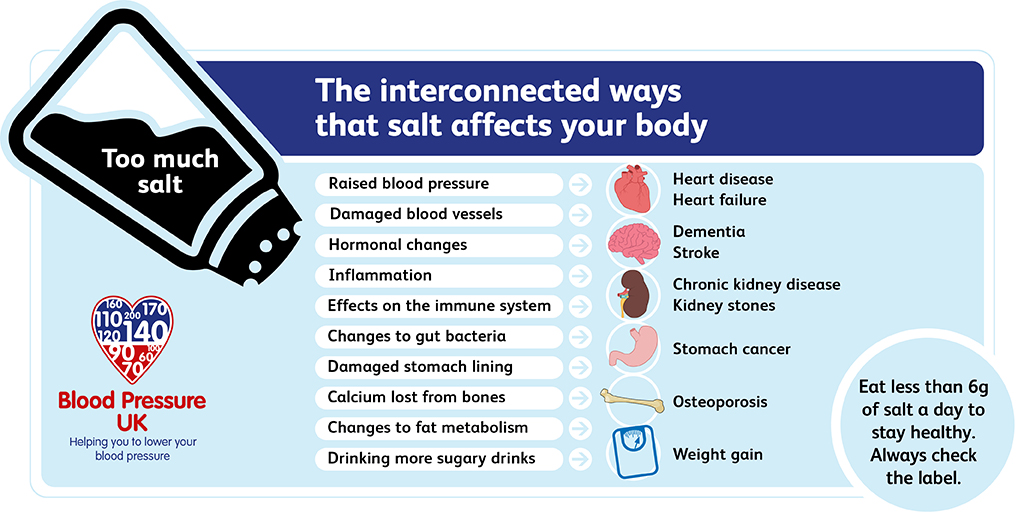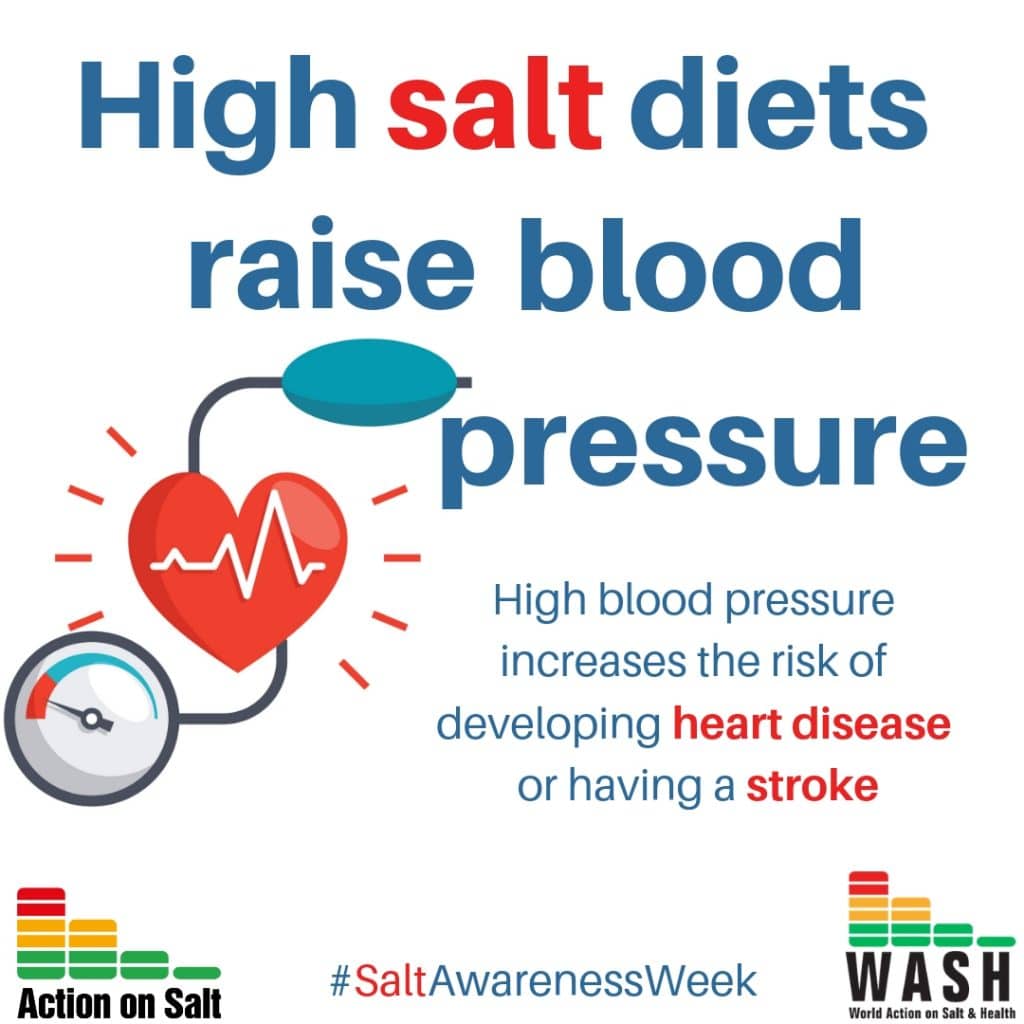Does salt under your tongue increase blood flow? This intriguing question has sparked significant interest among health enthusiasts and researchers alike. Many people are curious about unconventional methods to improve circulation, and placing salt under the tongue is one such technique that has gained attention. However, it's essential to delve deeper into the science behind this practice to understand its validity and potential benefits.
Placing salt under your tongue is often associated with increasing blood flow, but does it really work? This article aims to explore the scientific basis of this practice, its potential effects on the body, and whether it can genuinely enhance circulation. By examining the available evidence, we hope to provide clarity on this topic.
Our goal is to offer a well-rounded perspective on the subject, ensuring that you leave with a better understanding of whether this method is worth trying. Whether you're a health enthusiast or simply curious, this guide will cover everything you need to know about salt and its effects on blood flow.
Read also:How Many Kids Does Future Have A Comprehensive Look At The Rappers Family Life
Understanding Blood Flow and Its Importance
Blood flow is a critical component of overall health, as it ensures that oxygen and nutrients are delivered to all parts of the body. Proper circulation is essential for maintaining organ function, muscle performance, and overall vitality. When blood flow is compromised, it can lead to various health issues, including fatigue, poor wound healing, and cardiovascular problems.
What Causes Poor Blood Flow?
Poor blood flow can result from several factors, including:
- Arterial blockages due to plaque buildup
- High blood pressure
- Sedentary lifestyle
- Smoking
- Diabetes
- Obesity
Understanding these causes can help individuals take proactive steps to improve their circulation and overall well-being.
Signs of Poor Blood Flow
Recognizing the signs of poor blood flow is crucial for early intervention. Common symptoms include:
- Cold hands and feet
- Numbness or tingling in extremities
- Swelling in the legs and feet
- Slow wound healing
- Fatigue
Addressing these symptoms early can prevent more severe health complications down the line.
Does Salt Under Your Tongue Increase Blood Flow?
The idea of placing salt under your tongue to increase blood flow stems from the belief that salt can rapidly absorb into the bloodstream, potentially enhancing circulation. While this concept sounds promising, the scientific evidence supporting it is limited. Let's explore the science behind this practice.
Read also:Who Shot Jr Ewing Unveiling The Mystery Behind One Of Tvs Greatest Cliffhangers
How Salt Absorption Works
When salt is placed under the tongue, it can be absorbed directly into the bloodstream through the mucous membranes. This rapid absorption is why sublingual administration is often used for medications. However, the amount of salt absorbed in this manner is relatively small and unlikely to have a significant impact on blood flow.
Potential Benefits of Salt for Circulation
Some proponents of this method argue that salt can help relax blood vessels, potentially improving circulation. While salt does play a role in maintaining fluid balance in the body, excessive salt intake can lead to negative health effects, such as high blood pressure and water retention. Therefore, it's important to approach this practice with caution.
Scientific Evidence on Salt and Blood Flow
Research on the effects of salt under the tongue on blood flow is scarce. Most studies focus on the broader effects of sodium on cardiovascular health. While some studies suggest that moderate sodium intake can support healthy blood pressure levels, excessive consumption is consistently linked to negative outcomes.
Studies on Sodium and Circulation
A study published in the Journal of Hypertension found that excessive sodium intake can lead to arterial stiffness, which impairs blood flow. Conversely, maintaining a balanced sodium intake may support healthy circulation. However, these studies do not specifically address the sublingual absorption of salt.
Limitations of Current Research
One major limitation of current research is the lack of studies specifically examining the effects of placing salt under the tongue. Most research focuses on dietary sodium intake, making it difficult to draw definitive conclusions about this particular practice.
Health Risks of Excessive Salt Intake
While salt is essential for maintaining proper bodily functions, excessive intake can pose serious health risks. These risks include:
- High blood pressure
- Heart disease
- Kidney damage
- Fluid retention
It's crucial to monitor your salt intake, whether consumed through food or administered sublingually, to avoid these potential complications.
How Much Salt is Too Much?
The World Health Organization recommends limiting daily sodium intake to less than 2,000 mg. For most people, this equates to about one teaspoon of salt per day. Exceeding this amount can increase the risk of health problems, making it important to practice moderation.
Alternative Methods to Improve Blood Flow
If you're looking to enhance blood flow, there are several scientifically-backed methods you can try. These include:
Exercise
Regular physical activity is one of the most effective ways to improve circulation. Activities such as walking, swimming, and cycling can strengthen the heart and promote healthy blood flow.
Healthy Diet
A diet rich in fruits, vegetables, whole grains, and lean proteins can support cardiovascular health. Foods high in antioxidants, such as berries and leafy greens, are particularly beneficial for circulation.
Hydration
Staying well-hydrated is essential for maintaining proper blood flow. Dehydration can lead to thicker blood, making it harder for the heart to pump efficiently.
Expert Opinions on Salt and Circulation
Experts in the field of nutrition and cardiology generally advise against relying on unconventional methods, such as placing salt under the tongue, to improve blood flow. Instead, they recommend adopting a holistic approach that includes a balanced diet, regular exercise, and stress management.
What Do Cardiologists Say?
Cardiologists emphasize the importance of maintaining a healthy lifestyle to support circulation. They caution against excessive salt intake, as it can negatively impact cardiovascular health. Instead, they recommend focusing on heart-healthy habits, such as eating a balanced diet and engaging in regular physical activity.
Practical Tips for Enhancing Circulation
Here are some practical tips to help you improve blood flow naturally:
- Incorporate aerobic exercises into your daily routine
- Stay hydrated by drinking plenty of water
- Limit processed foods and excessive salt intake
- Practice stress-reducing techniques, such as meditation or yoga
Supplements That Support Circulation
Some supplements, such as omega-3 fatty acids and magnesium, may support healthy circulation. However, it's important to consult with a healthcare professional before starting any new supplement regimen.
Conclusion
In conclusion, the question of whether salt under your tongue increases blood flow remains largely unanswered due to a lack of scientific evidence. While salt can be absorbed sublingually, the amount absorbed is unlikely to have a significant impact on circulation. Instead, focusing on a balanced diet, regular exercise, and other healthy habits is the best way to support optimal blood flow.
We encourage you to take action by incorporating these tips into your daily routine. Share your thoughts and experiences in the comments below, and don't forget to explore other informative articles on our website for more health-related insights.
Table of Contents
- Understanding Blood Flow and Its Importance
- Does Salt Under Your Tongue Increase Blood Flow?
- Scientific Evidence on Salt and Blood Flow
- Health Risks of Excessive Salt Intake
- Alternative Methods to Improve Blood Flow
- Expert Opinions on Salt and Circulation
- Practical Tips for Enhancing Circulation
- Conclusion
References:
- Journal of Hypertension
- World Health Organization


